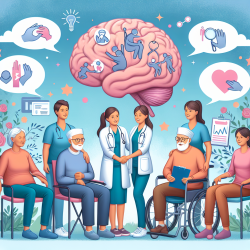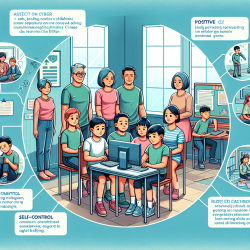Introduction
Caregivers of patients diagnosed with primary brain tumors (PBT) face significant challenges, both practical and emotional. These challenges are often overlooked in the broader context of patient care. A recent study titled "The impact of a primary brain tumor diagnosis on caregivers: Insights from the patients’ perspective" sheds light on the profound impact caregiving has on individuals who support PBT patients. This blog explores how practitioners can leverage these insights to improve supportive care interventions for caregivers in neuro-oncology.
Understanding Caregiver Impact
The study identifies two main themes related to caregiver experiences: Caregiver Impact and Caregiver Support. The Caregiver Impact theme highlights the practical and emotional demands placed on caregivers. Patients acknowledged the significant shifts in family dynamics and responsibilities that occur post-diagnosis. Caregivers often become the primary decision-makers and supporters, managing appointments, medications, and household duties.
Emotionally, caregivers experience heightened anxiety and stress, often more so than the patients themselves. This emotional burden is compounded by anticipatory grief and the constant vigilance required to monitor the patient's health status.
Enhancing Caregiver Support
The study emphasizes the need for comprehensive support systems for caregivers. Patients advocate for interventions that address both practical and emotional aspects of caregiving, suggesting that support should be available from diagnosis through the bereavement phase. This includes:
- Individual therapy sessions for caregivers to process their emotions independently.
- Joint therapy sessions to improve communication and address shared concerns within the caregiver-patient dyad.
- Bereavement support to help caregivers cope with loss and transition.
Patients expressed a preference for a combination of independent and joint sessions, allowing both parties to explore their needs and concerns in a safe space.
Implications for Practice
Practitioners in neuro-oncology can enhance caregiver support by integrating these patient-driven recommendations into their care models. Programs like UCSF’s Neuro-Oncology Gordon Murray Caregiver Program offer a framework for comprehensive caregiver support, addressing both practical and emotional needs. By adopting similar models, practitioners can improve the quality of life for both patients and caregivers.
Conclusion
Understanding the caregiver experience from the patient's perspective provides valuable insights for developing effective supportive care interventions. By prioritizing caregiver support, practitioners can foster better outcomes for patients with PBT and their families. To read the original research paper, please follow this link: The impact of a primary brain tumor diagnosis on caregivers: Insights from the patients’ perspective.










